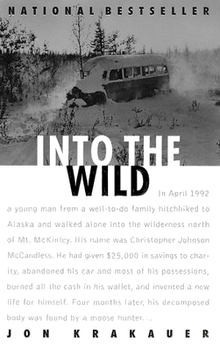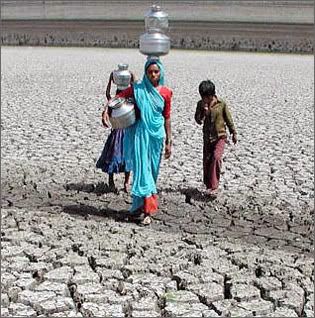As I was driving home on this frigid afternoon, listening to some long forgotten tune, I couldn't help but notice the price of gas at the station two miles from my house. I don't usually stop at this gas station, for their prices usually exceed that of the fuel I can buy in Kalamazoo. However, today was different. Today, I was shocked to see that gas was one dollar and forty six cents, a price that I haven't seen since....possibly ever? I kid you not, my first reaction was somewhat of a fear and disappointment. There were cars lined up, waiting to fill their tanks with the leftover remnants of fossils. These cars would go on to do whatever they do, producing emissions that will further contribute to the destruction of our Earth.
Destruction of Earth seems to be McKibben's topic of choice. In fact, he proposes so many negative outcomes in life, that I am beginning to doubt every action I take. While getting my hair cut, I spent half of the time discussing global warming with my hairdresser! The other half was spent talking about cancer. It's no wonder she gave me the number of a counselor, even if the number wasn't for me. The point is, global warming is taking our lives, faster than we can control. But I have decided that, like the Centers for Disease Control and Prevention, our aim should be to prevent outcomes from ever occurring, rather than try to find solutions to pick up and control what's left in the aftermath. Although a rise in temperature has already created irreversible damage to our world, there is still some fragment of hope, and I hope that in the near future, members of our society will be active creating a new, cleaner version of Earth.

While reading the second chapter, I found myself once again overwhelmed by facts and statistics. In fact, I became rather irritated, because there is only so much information a person can consume before they thoroughly understand a topic. Because of McKibben's statistics, I feel very aware of the dangers of global warming. I do not desire to read 200 pages of a man telling me that my fate is doomed, because I refuse to accept that. I believe that, in order to create change, in order to really change our world, rather than shock individuals with endless statistics, members of our government must propose and enforce solutions, such as severely limiting the amount of resources an individual consumes on a daily bases. Yes, this would create a public outcry, but it is the only way we are going to survive as a species. The graph to the left depicts the break down of the average American's emission of carbon dioxide, from the Union of Concerned Scientists. Can we begin to share rides, eat vegetables rather than microwaveable noodles, and use a blanket when we are cold, rather than crank up the heat?
Survival is a sort of human characteristic. A way of life that has been passed on through generations. If, thanks to an increase of temperature, diseases that have been nearly eradicated reemerge, our species will struggle to survive. In 7th grade, I was on a week long field trip on the east side of Tanzania. One night, I woke up sweating and vomiting, with a terrible headache. These symptoms lasted all through the night and into the next three days. My teacher called my father to bring me home, because I had gotten malaria from a small, very dangerous creature. Although I made it out just fine, in the present time, I surely felt like I was struggling to survive. Yes, that is quite dramatic, because I had the medication and resources to live, however I would never wish a disease like malaria on anyone. To me, the most threatening aspect of global warming is disease. Disease is one of the most crippling aspects of society, and with an increase of temperature, disease is only going to get worse. After spending months in Africa, and going to a camp at the CDC last summer, I have developed somewhat of an irrational fear of tropical diseases spreading across the world, due to climate change. As more and more individuals choose to go unvaccinated, and our species continues to raise the temperature on Earth, we are creating a microcosm of infectious disease and death. The real question becomes, are we going to die because of chlorofluorocarbons depleting the ozone, or because of a small, itchy mosquito bite?
 Anopheles Mosquito
Responsible for carrying and distributing malaria
Anopheles Mosquito
Responsible for carrying and distributing malaria




















